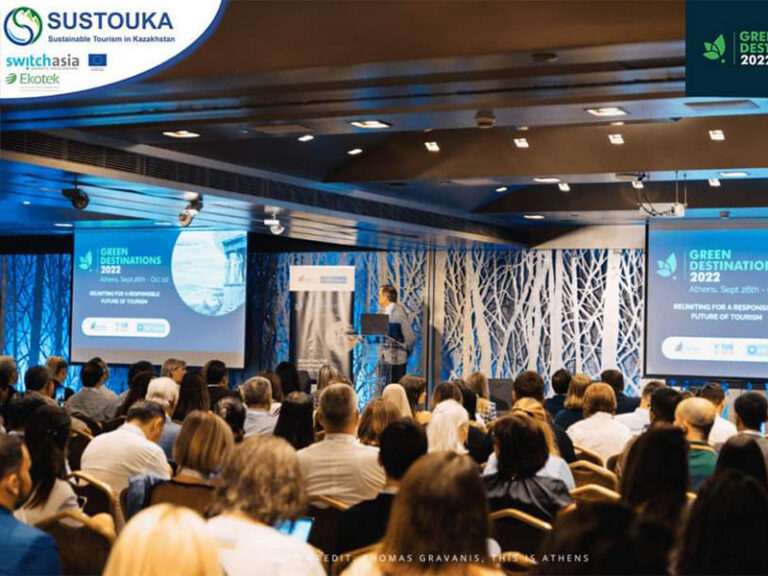KTA and KAGIR along with tourism representatives and policy-makers of the Republic of Kazakhstan, within the action of the EU-funded SUSTOUKA project, participated in the last days of September in the Green Destination & Future of Tourism Summit 2022 held in Athens. These three-day-long summit was organized by Green Destinations and Future of Tourism coalitions along with the Greek National Tourism Organization and brought together more than 240 delegates from 43 countries.
Politicians, sustainability professionals, businesses owners, destinations representatives, universities and tourism boards attended conferences and panel discussions to receive the latest tendencies and best practices to support peer learning and to identify initiatives, tools and solutions for sustainable tourism destinations.
On September 27, when the World Tourism Day is celebrated, the Green Destinations platform unveiled a list of the top best sustainable practices around the world and promoted stories about innovative and impactful initiatives towards sustainable development. It is noteworthy that a location of Central Asia, Alai region of Kyrgyzstan, entered the TOP100 Stories of Green Destinations list this year.
On the third day of the summit, our delegation participated in the “Creating a climate for collaboration” summit organized by the Future of Tourism Coalition, during which the City of Athens officially signed the Glasgow Declaration on Climate Action for Tourism. This Declaration aims at actively support global efforts to halve GHG emissions and hitting Net Zero targets. To date, over 500 organizations around the world have signed the Declaration to support the global commitment to #NetZero emissions by 2050.
The study tour of the delegation ended with a trip to Hydra Island. This Greek Island served as an example of how a tourism destination can work towards sustainability: Local community takes decisions about sustainable policy, accommodation facilities implement regularly sustainable consumption and production practices, private transport is reduced to the minimum, waste recycling is supported and encouraged, etc.

Close





